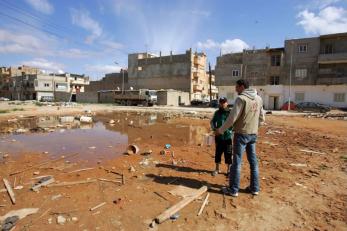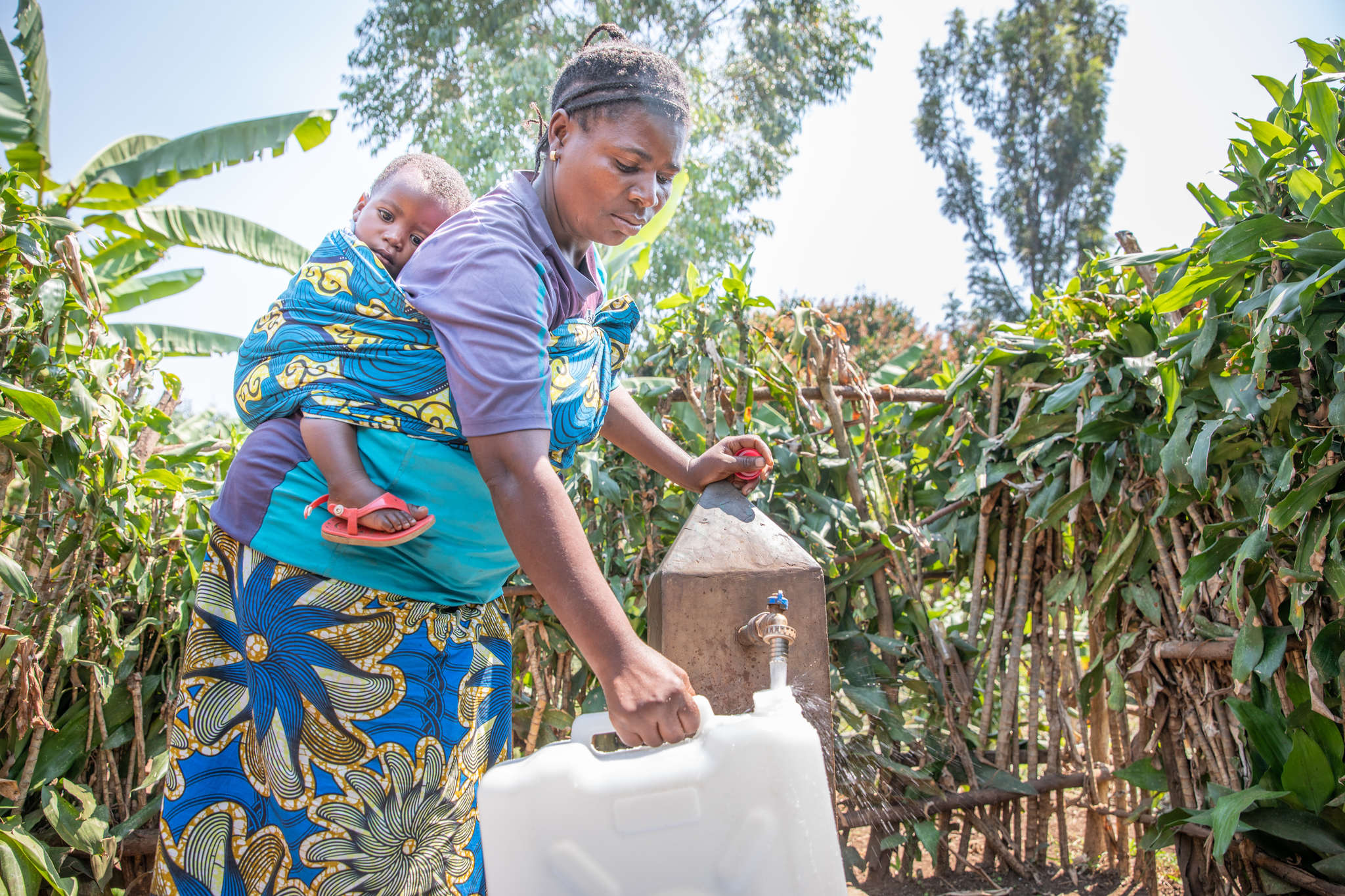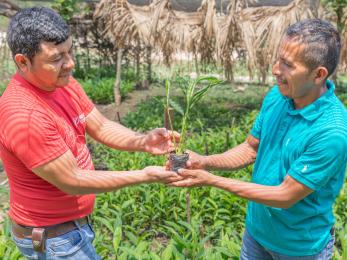Libya's impoverished back streets and slums

Despite the fact that Libya is one of the world’s 10 richest oil-producing countries in the world, many citizens live in squalid slums without access to clean drinking water or adequate sewage systems. In 2000, it was estimated that 28 percent of Libya's population did not have access to safe drinking water.
The tertiary streets of Benghazi and all the towns I have visited in eastern Libya are typically bumpy dirt roads with cesspools. The slum areas are filled with decaying apartment buildings where extended families with up to 20 members are squeezed into just a few rooms. It is almost impossible to imagine this is a rich country, based on the living standards we see in many places.
Today, Mercy Corps was in the Sidi Idriss neighborhood — a low-income area in the city of Benghazi. We came to this area because we heard that the residents had never had safe drinking water and were buying their water in bottles. The cost of clean drinking water from the store was hard for them to manage before the uprising began almost a month ago. Today, they are struggling to provide for their families and tapping into their meager savings, hoping the violence ends soon before their money runs out.
We spent the afternoon with the El Kabaely family to learn more about their situation and see how we might be able to help. The extended family of 18 people had savings of just 400 Libyan Dinar (about US$285) at the start of the revolution. Because of the fighting and unrest, they are unable to work. Now they say they have spent most of their savings and predict they have two weeks left before they are flat out broke and won’t be able to purchase water or other necessities.
Mercy Corps is looking into helping this neighborhood and others like it get access to clean drinking tap water and to improve their sewage system. In addition, there are vacant lots filled with refuse and standing pools of filthy water that could be renovated and made into park space for the kids who now play in the dirt streets — there is no park in their area.


